The Middle Ages, also known as the Medieval Period, is a segment in the timeline of European History beginning from 5th century and ending in 15th century. It is usually subdivided into three periods- the Early Middle Ages, the High Middle Ages, and the Late Middle Ages. The early Middle Ages is characterized by the formation of new kingdoms by Barbarian invaders with consequent deurbanisation. The Early Middle Ages (starting from 5th to 9th centuries) is characterized by technical advancement and increased crop yield. The High Middle ages started in the year 1000, following the era of invaders like the Vikings, Magyars, and Saracens.
1. Frederick Barbarossa
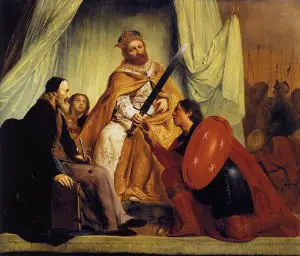
Fredrick Barbarossa was born to Fredrick II, Duke of Swabia and Judith of Weingarten in 1122. He died in Saleph River, Silifke, on June 10, 1190 at the age of 68. He was elected king of Germany on March 4, 1152 at Frankfurt, crowned in Aachen on March 9, and crowned King of Italy in Pavia in the year 1152. He was finally crowned Roman Emperor by Pope Adrian IV on June 18, 1155. Frederick Barbarossa started the third crusade along with the French king, Phillip Augustus and the English King Richard the Lion Heart. Fredrick organized a huge army comprising of 100,000 soldiers including 20,000 knights. Fredrick was impatient to cross the Saleph River, and instead of crossing through the occupied bridge, he preferred to cross the river on horseback. The river flow was too strong for the horse and his armor was too heavy to float and consequently Fredrick drowned in the river to the utter dismay of his troops.
2. King Edward III
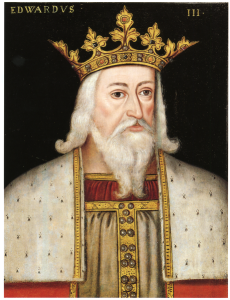
King Edward III was born to Edward II of England, and Isabella of France in Windsor Castle, Berkshire on November 13, 1312. He died in Sheen Palace, Richmond on June 21, 1377 at the age of 64. He became King of England in 1327 at the age of 14, after the deposition of his father King Edward II and retained the position until his death. After the weak administration of his father, the preceding King, he made the English military a formidable power in the Europe. During his reign he saw the evolution of the parliament and the disastrous pandemic of plague known as ‘Black Death’.
3. King Richard III
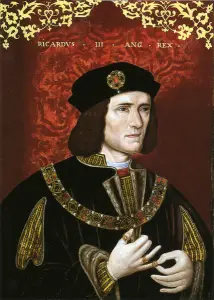
Richard III was born to Richard Plantagenet; the Duke of York and Cecily Neville, Duchess of York in Fotheringhay Castle, Northamptonshire on October 2,1452 and died in Bosworth field, Leicestershire on August 22,1485 at the age of 32. He belonged to House of York. Richard III reigned as King of England for two years from 1483 untill his death in battle of Bosworth Field. He was the last king of the House of York and the Plantagenet Dynasty. His defeat in the Bosworth Field is considered the end of middle Ages in England. The Battle of Bosworth Field was the decisive Battle of the War of Roses, fought sporadically between two contenders of the English throne; The House of Yorks with White rose heraldic symbol and the House of Lancaster with red rose heraldic symbol. William Shakespeare wrote a play titled ‘Richard III’.
4. Henry ÃŽâ„¢
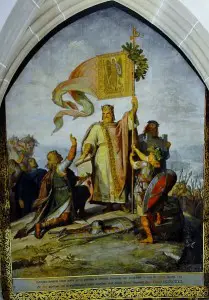
Henry ÃŽâ„¢, known in German as Heinirich der Finkler, was born to Otto the Illustrious ,and Hedwiga in 876 and died on July 2, 936. He was the first king of Ottonian dynasty of German Kings. He was Duke of Saxony from 912 and king of Germany from 919 until his death in 936. He founded the first medieval German State known as Francia. He is known by the epithet ‘Henry; The Fowler’ because he was a keen hunter and was setting nets for birds when he received the message that he was going to be the king. Henry considered the Kingdom of Germany as a confederation and allowed the dukes of Franconia, Swabia and Bavaria to excericise full control over their internal holdings. Henry died of a stroke on July 2, 936 in Palatium, Memleben, and his Son Otto Succeeded as Emperor.
5. Phillip II Augustus
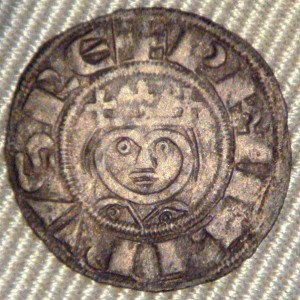
Phillip II Augustus was born to Louis VII of France and Adele of Champagne in Val-d-Oise, Gonesse in France on August 21, 1165. He died in Mantes-la-Jolie, France on July 14, 1223 at the age of 57. He was the last king of the Franks and the first king of France from 1190 until his death in 1223. He was the most influential and successful mediaeval French Monarch. He defeated his German, Flemish, and English rivals at the Battle of Bouvines in 1214. He was a popular king because he cut some of the share of nobility and passed it on to the masses, bringing them prosperity. He brought economic stability to the country. He was an ally of Frederick Barbarossa and Richard; the Lion heart in the crusade against the Muslim king Saladin.
6. Justinian I
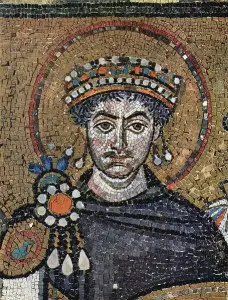
Full name of commonly known Justinian I was ‘Petrus Sabbatius Justinianus Augustus. He was born to Sabbatius and Vigilantia in Tauresium, Dardania in the year 482. Also known as ‘Justinian the Great’ he was Byzantine Emperor from 527 to 565. He was the last Roman Emperor who spoke Latin as first language. He wanted to regain the lost part of the classical Roman Empire. In addition to regaining some parts of lost Roman emperor through his capable generals he revived the Byzantine culture as reflected in the architecture of ‘The Church of Hagia Sophia’. His works include the standard rewriting of the Roman law ‘The Corpus Juris Civilis’ which has served the basis of civil law in many modern states.
7. King Robert ÃŽâ„¢
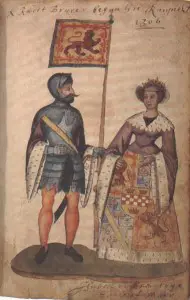
King Robert ÃŽâ„¢ was born to Robert de Bruce, 6th Lord of Annandale and Marjorie, the Countess of Carrick in Turnberry Castle, Ayrshire on July 11, 1274 and died in Manor of Cardross on June 7, 1329 at the age of 54. He was one of the greatest Kings of Scotland and one of the greatest warriors of his time. He led Scotland during the wars against England. He reigned Scotland from 1306 to 1329 and is remembered there today.
8. Lothair ÃŽâ„¢

Lothair ÃŽâ„¢ was born to Louis the Pious and Ermengrade of Hesbave in 795 and died in Prum on September 29, 855 at the age of 60. He reigned as Emperor from 817 to 855, as King of Italy from 818 to 855, and as King of Middle Francia from 843 to 855. He was crowned by his father in 817 and by Pope Paschal ÃŽâ„¢ on April 5, 823 in Rome. Conflict between brothers caused split up of the Frankish Empire, consequently laid the foundation of the modern states of Germany and France.
9. Phillip VI
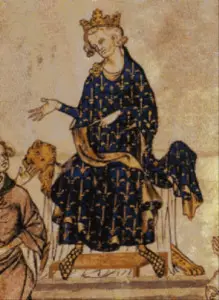
Phillip VI also known as ‘ The Fortunate’ was born to Charles ; Count of Valios and Margaret, Countess of Anjou in the year 1293 and died in Nogent ”œle-Roi, Eure-et-Loir, France on august 22, 1350 at the age of 57. He was the first King of France from the House of Valios and reigned from April 1, 1328 to August 22, 1350. Philip was crowned at the Cathedral in Remis on May 29, 1328. At the time of his entry into the Hundred Years war Phillip was in a strong position, but after the defeat at Crecy the Estates refused funding and any natural calamity. The worst ever pandemic plague known as ‘Black Death’ wiped out one third population including Queen Joan.
10. King William
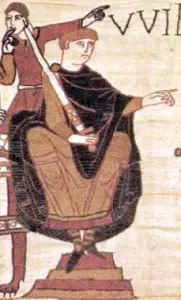
Belonging to the Norman dynasty, King William was born to Robert ÃŽâ„¢, Duke of Normandy and Herleva of Falaise in Chateau de Falaise, Normandy France in 1028. He died in Priory at St.Gervase, Rouven, France. He was also known as William the conqueror. Descending from Viking raiders, William faced difficulties when he became the duke at the age of 8 but by the year 1060 he had gained full control over Normandy. In early 1060, William became a contender for the English throne, held by the childless Edward the Confessor. Edward had named Harold Godwin’s son as the next king but William argued that Edward had promised the throne to him. He built a fleet and invaded England in September of 1066.He killed Harold at the Battle of Hastings and had a decisive victory. William was crowned in London on the Christmas day of 1066. As the king, he reigned in England from December 25, 1066 to September 9, 1087.
Conclusion:
Natural calamities, famine and similar difficulties are the distinguishing features of the late middle ages. The period from 1348 to 1380 is known as the most devastating pandemic in human history. The plague, was known as Black Death, and according to recent DNA researches it was caused by the bacterium ‘Yesinia pestis’.Famous kings of middle ages have tried to overcome the difficulties of their own specific period, as well as the prevalent circumstances and the needs of that time.










Leave a Reply